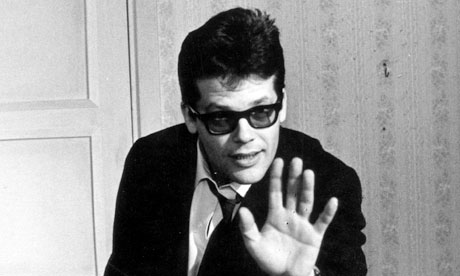
The early 1960s were a good time to be the child of British communists. For every achievement of capitalism, we were able to point to a similar triumph of the dictatorship of the proletariat. Half the globe lived under some kind of Marxist regime; the USSR was way ahead in the space race and the Daily Worker reported successes all over the east in the sciences and the arts. But for somebody in their early teens obsessed with the idea of cool, this was one area where communism couldn't compete with the decadent west.
Yuri Gagarin, the first man in space, may have had his charms, but he really couldn't be considered hip. No matter how hard I searched I couldn't find anybody in Bulgaria, Russia or North Korea who possessed the combination of effortless style and sinuous-hipped sensuality of an Elvis, a John Lennon or a James Dean. That is until 1968, when I went to see a double-bill of Polish films, Andrzej Wajda's Kanal and Ashes and Diamonds, and first saw Zbigniew Cybulski.
This charismatic young actor styled his hair in a luxuriant black quiff, wore a leather biker jacket and tinted sunglasses. Later I read that he had to wear them because he'd fought in the Warsaw Uprising – the three month long insurrection against the Nazis – where the guerillas moved about in the sewers, so he couldn't take bright light. Which, even if it wasn't true, was a brilliant excuse to wear shades after dark. In Ashes and Diamonds Zbigniew Cybulski not only got to wear an outfit that was completely wrong for the period, but he also got to carry a German 9mm MP 38 submachine gun all the time – which was pretty much my dream. There was, too, an air of doomed romanticism around Cybulski, because the year before I came upon him he had, like James Dean, lost his life in an accident. Though unlike the Hollywood star, who was killed at the wheel of his Porsche, Cybulski died in true socialist fashion, running for a train.
Until my discovery of Cybulski and Wajda the only films from the communist sphere that I had seen were either po-faced socialist propaganda or the movies of Eisenstein, films such as Battleship Potemkin or Alexander Nevsky which, though clearly masterpieces, were highly stylised early-20th-century artefacts with seemingly limited relevance to my postwar world. In these Polish movies there existed characters who were not symbols of dialectical and historical materialism but instead possessed inner lives as complex as any of those portrayed in western cinema.
Now Second Run DVD is releasing a quartet of Polish movies from the late 1950s – Night Train, Innocent Sorcerers, Eroica and Goodbye, See You Tomorrow?, two of which star Cybulski and one of which is directed by Wajda. If you didn't know Night Train was the product of a communist country you would not deduce it from the film. There is no hint of socialist propaganda, only the atmospheric tale of a disparate group on a night train, one of whom may be a murderer. The film won best actress at the 1959 Venice Film Festival and something called the Golden Duck, as voted by the readers of Polish magazine Kino.
Innocent Sorcerers is about Andrzej, a young, hipster medic with bleached blond hair, who divides his time between being a doctor at a boxing stadium, having sex with women and playing jazz in a local dive. Goodbye, See You Tomorrow? is a romantic comedy set in Gdansk and, as well as Cybulski, features a young Roman Polanski in a supporting role.
There is the occasional episode of eastern European ludicrousness in these films. The opening credits of Goodbye, See You Tomorrow? featuring the work of the Bim Bom Theatre group and their "Theatre of Hands" brought back memories of my time as a child in communist Czechoslovakia, forced to sit through officially sanctioned puppet shows. "Theatre of Hands" turns out to be somebody's arms waving about incomprehensibly against a black screen. Nevertheless, watching these films was an intensely rewarding experience, once I had adapted my mind to their different rhythms, manners and concerns. In trying to come to terms with these movies I was reminded of the process of meditation. I found you have to quell your expectation for fast-cutting monkey-minded western cinema and instead try to acclimatise yourself to the slow-breathing pace of these films. The US psychologist John Kabatt Zinn describes the process of meditation as not trying to fall asleep but instead trying to "fall awake". And if you can manage to match yourself to these pictures' alien style you will find you're suddenly tumbling into a world that is rare and strange and unlike anything you may have encountered before.
• Restored versions of Night Train and Innocent Sorcerers are are screening as part of this year's Kinoteka Polish film festival. The Polish Cinema Classics DVD box set is released on 12 March.

